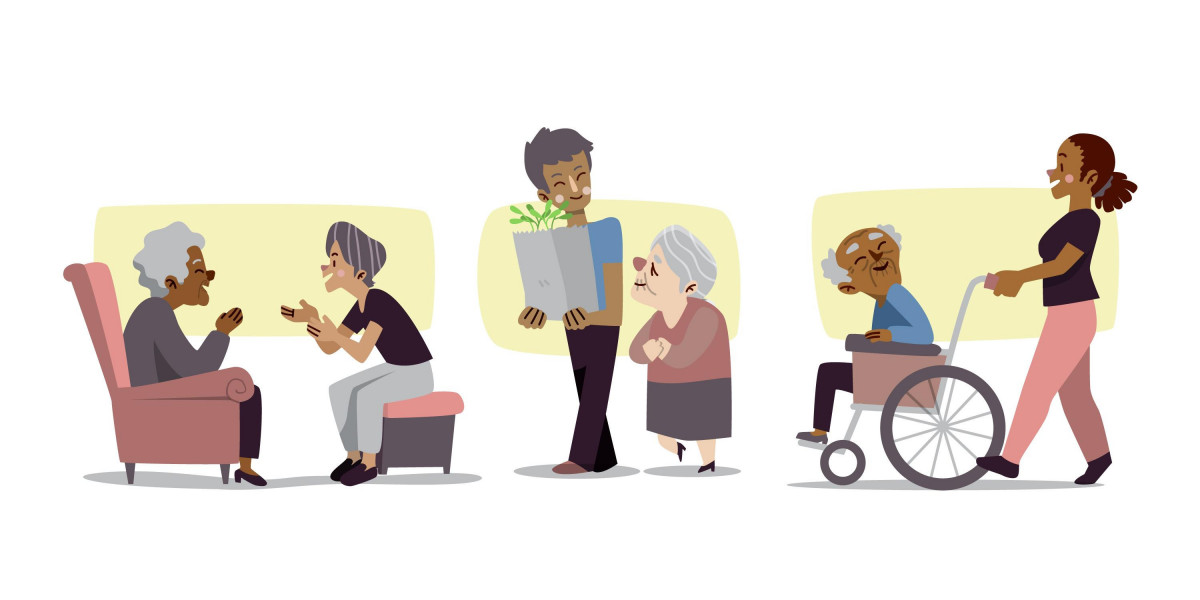Every day, we do small tasks like getting dressed, brushing our teeth, or eating meals. For many people, these tasks are simple. But for people with disabilities, it can sometimes be hard to do. This is where NDIS Personal Care Support can help.
The National Disability Insurance Scheme (NDIS) provides personal care support to help people with disabilities stay clean, healthy, and happy. This support is all about making daily life easier while helping people feel confident and independent. If you or someone you know uses this service, here are some easy tips to get the most out of it.
1. Understand What Personal Care Support Includes
Personal care support covers a lot of daily tasks. These services are designed to help with things that might be a little tricky to do alone. Here are some examples of what NDIS personal care support can provide:
Getting dressed - This can include help with putting on clothes, doing up buttons, or tying shoes.
Staying clean - A support worker can help with bathing, washing hair, brushing teeth, or other grooming tasks.
Using the bathroom - People who need extra assistance with toileting can get help respectfully and privately.
Eating meals - Support workers help by serving meals, cutting food, or assisting with eating.
Taking medicine - Reminders or help taking medication can also be part of care support.
Moving around - If someone has trouble getting in or out of bed or moving to a chair, support workers lend a helping hand.
Knowing what is included in personal care support can help you figure out what tasks you most need help with.
2. Talk to Your NDIS Planner
To use NDIS personal care support, you first need to make sure it’s part of your plan. When talking to your NDIS planner, be clear about your daily challenges. Tell them about all the tasks that take extra time or effort.
For example, if you struggle to brush your hair or use the bathroom alone, mention these things during the plan meeting. The planner will help include these supports in your NDIS plan.
Remember, the more your planner knows about your needs, the better they can create a plan for you.
3. Have a Daily Routine
Having a routine can make personal care support work better for you. Think about the times of day you need the most help. For example:
Mornings: Getting ready for the day might include getting out of bed, showering, and getting dressed.
Afternoons: You might need help with lunch, taking a nap, or preparing for an outing.
Evenings: Personal care support could include taking your medicine, brushing your teeth, or getting into bed.
When your day runs smoothly, it makes everyone feel calmer and organised. Plus, having a routine makes it easier for your support worker to know what to do and when to do it.
4. Find the Right Support Worker
A good support worker can make a big difference in your life. This is someone you’ll spend a lot of time with, so it’s important to find the right match.
Here’s how to choose a support worker that’s best for you:
Feel comfortable: You should feel happy and relaxed around your worker.
Look for experience: Pick someone who knows how to help with the tasks that you find hard.
Ask questions: During interviews, ask about their skills. See if they understand what you need.
If you don’t feel happy or comfortable with your worker, it’s okay to request a change. Your comfort and safety come first.
5. Personalise Your Care
Personal care support should feel just right for you. Everyone has their preferences, and it’s okay to share them with your support worker.
For instance:
If you like your clothes folded a certain way, share that.
If you enjoy breakfast right after waking up, tell your worker.
If you want your medications served with water instead of juice, mention it.
When care is tailored to match your personal choices, daily tasks feel easier and more enjoyable.
6. Use Helpful Tools
Sometimes, special tools can make everyday tasks simpler. And the good news? NDIS might cover the cost of these items. Here are a few examples of tools that can help with personal care:
Shower chairs: Make bathing safe and easier for those who have trouble standing for long periods.
Grab rails: Help with balance when using the bathroom or moving around.
Special cutlery: Easy-to-grip forks and spoons can make eating easier.
Medication containers: Simple pillboxes to organise and remind you to take your medicine on time.
If you think a tool or device could help you, ask your planner or support worker for advice.
7. Communicate Clearly
Good communication is the key to getting the best out of personal care support. Be open and honest with your worker about how you feel and what you need. Here are some tips:
Speak up: If something isn’t working, say so. This helps the worker improve or adjust their approach.
Be patient: Being kind and patient builds a good relationship with your support worker.
Ask questions: If you’re unsure about something, don’t hesitate to ask.
Open communication makes sure your care is always in line with what you need and prefer.
8. Take Small Steps
It’s okay if some tasks feel uncomfortable at first. Starting small can help you get used to personal care support. For example:
Begin by letting your support worker help with one task, like brushing your hair.
Once you’re comfortable, slowly add more tasks like dressing or taking a bath.
With time, you’ll get used to the routine, and tasks will feel easier.
9. Celebrate Your Progress
Each time you complete a task, it’s a small win! Celebrate your progress, no matter how small it feels. For example:
If you need less help getting dressed one day, give yourself a pat on the back.
If you finish your morning routine on time, feel proud of that achievement.
Personal care support is about helping you feel strong and capable. Every little step forward is something to be proud of.
Final Thoughts
NDIS Personal Care Support makes life easier for people with disabilities. It’s about getting help with daily tasks like bathing, eating, or getting dressed. This support not only helps with daily life but also builds confidence and independence.
By knowing your needs, picking the right support worker, and sticking to a routine, you can make personal care support a positive experience. Take small steps, ask for help when needed, and celebrate every win.
If NDIS Personal Care Support could make life better for you or someone you care about, talk to a planner today. Together, you can make each day brighter and easier to enjoy.









